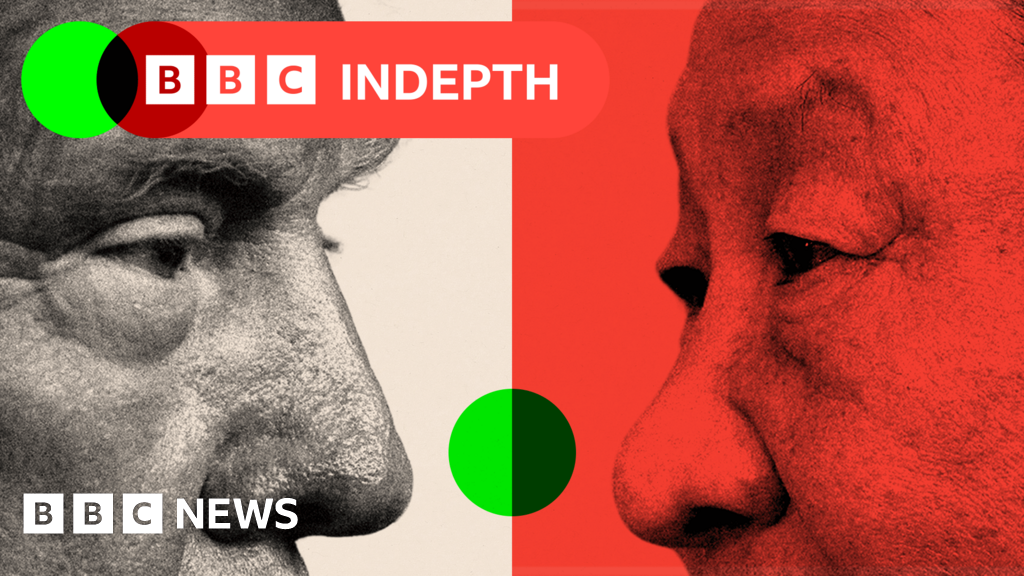President Xi’s dream of prosperity is in jeopardy. China’s economy is sluggish, its property sector is sinking, nearly 20% of its young people are struggling to find jobs and it has one of the world’s fastest growing ageing populations.
Some of this economic pain is clear at the Temple of Heaven. We join the throngs of Chinese tour groups walking through white marble gates. It has become fashionable for young people to dress up in Qing dynasty costumes although their long silk robes often fail to hide the other big trend – chunky white trainers.
Dozens of school groups are listening attentively to guides about their city’s colourful history while a queue forms around the altar to make a wish. I watch as a middle-aged woman dressed in black takes her turn. She turns three times, clasps her hands, closes her eyes and looks toward the sky. Later we ask what she hoped for. She says many people come here and ask for their children to get jobs or to get into a good school.
“We wish for better lives and prospects,” she says. While China claims to have eradicated extreme poverty, millions of labourers and factory workers across the country, those who contributed to China’s rise, will worry what about what’s to come.
Her future and the future of China’s economy may partly depend on just how serious Trump is about his tariffs. This time, Beijing is prepared, according to Yu Jie.
“China has already begun to diversify its sources of agricultural imports (notably from Brazil, Argentina and Russia) and increased the volumes of its exports in non-US allied countries. At a domestic level, the recent local government debt recapitalisation is also paving the way to offset the negative impacts on the likely trade war with the Trump Administration.”

